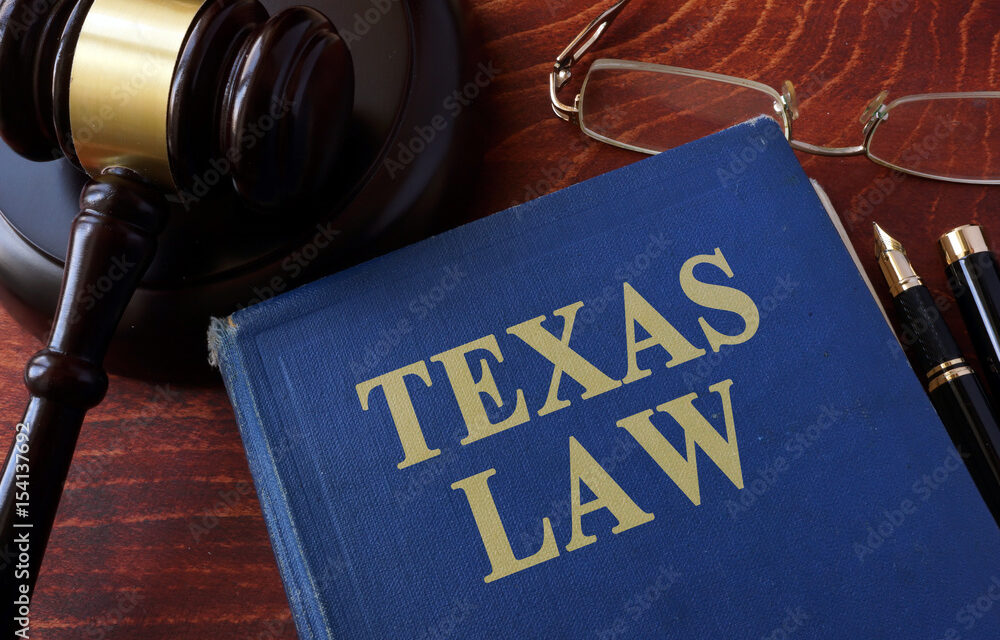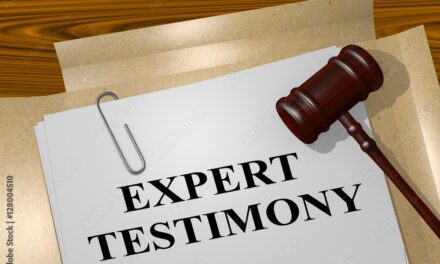EXPERT TESTIMONY and RULES OF LAW
Expert testimony in Texas courts, and pretty much everywhere else, is very similar when it comes to rules of procedure, though not exactly alike. As one might expect, the testimony must be based on facts, the knowledge that makes the witness an expert, the quality of the expert’s reasoning, e.g., its objectivity, and the reasonableness of the conclusions. There cannot be an unreasonable “analytical gap” between the facts and the opinion; the presence of such a gap destroys sound argument and makes the opinion nothing more than speculation. If the law controls features of the expert’s reasoning, that reasoning must conform to the law, or else it is unreliable.
Exactly this problem arose in a condemnation case in Texas not long ago. The complex facts of what sort of land was involved, the fact that the oil and gas industry was involved and the amounts of money at stake need not concern us here. Nor need other complicated details as to how land value appraisals must be conducted. The problem about to be discussed was not that the appraiser got numbers wrong. The problem here was that the appraisal expert witness followed the wrong rule of law. “If an appraiser [of land values] utilizes improper methodology or misapplies established rules and principles, the resulting testimony is unreliable and must be excluded.” Enbridge Pipelines (East Texas) v. Avinger Timber, 386 S.W.3d 256 (Tex. 2012).
It is established American law, and it has been for well more than a century, that the amount to be paid the owner of the land—the measurement of the compensation for the land taken when it is condemned is determined by measuring the land owner’s
loss, not the taker’s gain. This is called the value-to-the-taker rules and it “prohibits an owner from receiving an award based on a tract’s special value to the taker, as distinguished from its value to others who may or may not possess the power to condemn.”
For complicated reasons arising out the businesses involved, the appraiser for the seller violated this rule in calculating the amount to which his client was entitled. For this reason, the Supreme Court of Texas sent the case back to the trial court.
—MSQ
Several things may be said about this decision.
1. Landowners whose property is or might be taken from them have always hated this way of calculating their entitlement following condemnation since it is the opposite of how the free market works for the sale of land. In the market, the price depends on what the owner can get, which hinges on what value he will receive, and that hinges on what a particular buyer is willing to pay.
2. Legal theory justifies this rule paradoxical rule works by assuming that the land is already at its highest and best use. Of course, often it is not. The landowner can get around this assumption sometimes—that’s why it’s called a “presumption”—but it’s not easy, and probably did not apply in this case anyway.
3. In this case, the difference between what the land owner’s expert said the land’s value was, nearly $22M, and what the condemnator’s expert said it was worth was well more than $19M. Of course, it’s no wonder the landowner thought it was getting screwed.
4. There is an oddity, in this case, to be found in the way the landowner came up with its sale price. Enbridge had been leasing the land from the owner, Avinger, to run a gas plant. The lease was about to run out, and as a consequence, Enbridge would have to tear down the plant if the lease were not renewed, which it looked like it wouldn’t be. Doing this would cost Enbridge many millions of dollars, and it was for this reason that it wanted the property condemned. If it owned the property, it would not have to tear down the plant.
5. My guess is that Avinger wouldn’t renew the lease, even though it made eminent sense to have a gas plant there, precisely in order to force a sale and get the money. Besides, maybe it wanted to grow trees—or so it might have said.
One wonders if this case is not a manifestation of a business conflict between the two parties to the case, the seller and the buyer. This is not the ordinary, simple condemnation case when the electric company won’t put a wire across some property, the water
company wants to build a pipe, or the county wants a road. If so—if this case is really the “personification” of a mere business struggle for profit, Avinger may not be entirely an “innocent” victim, in the say that “mere” landowners are.
Granted, there is a stunning difference between what the administrative agency awarded Avinger and what the jury awarded. The former was less than 1/1000th of the latter. This difference can only be described as shocking and therefore suspect. The Supreme Court does not discuss this matter, but it makes a brief remark about Avinger’s entitlement, and since it remanded the case back to the district court, the amount that gets awarded may change radically.
Avinger will have to obtain a new expert, however. A puzzling feature about the expert Avinger used is that while his appraisal may have been clever, it is almost immediately suspect, even to an amateur. Picking the right expert can involve more than making sure that you have a person who is an expert and who is articulate. Although expert witnesses are not, for the most part, invited—or even permitted—to testify as to the law, sometimes they have to know the law to give truthful testimony.
I’ve never seen a case of legal malpractice arising out of picking the wrong expert, but that is surely possible.







Recent Comments